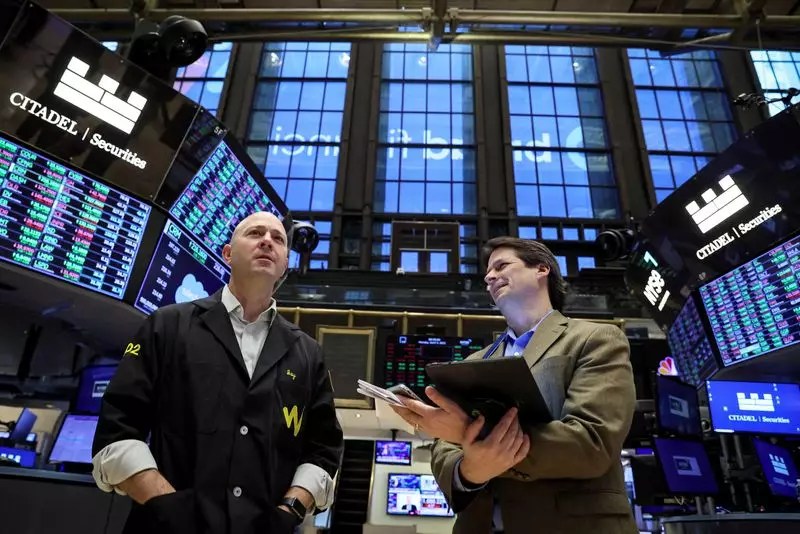In a remarkable twist of events on Friday, the Dow Jones Industrial Average reached an all-time high, closing at 42,313.00 points, up by 137 points or 0.3%. This achievement is particularly notable given the prevailing uncertainty surrounding the technology sector, which experienced slight declines. The index’s resilience appears to be anchored in a significant uptick in energy stocks and emerging indicators suggesting a disclaimer in inflation pressures, providing a boost to overall investor confidence.
Contrary to expectations, U.S. consumer spending exhibited a growth rate of only 0.2% for August, a notable deceleration from the previously reported 0.5% in July. This figure prompted some analysts to reassess potential economic trajectories as it represented the slowest growth in seven months. Moreover, household income growth also diminished, slipping from 0.3% in July to 0.2% in August. Economists had pegged expectations higher, forecasting a 0.4% increase. While Kathy Jones of Charles Schwab acknowledged these slowdowns are concerning, she emphasized they do not signal a dramatic downturn, suggesting that wage growth has been a bedrock for consumer spending despite some labor market vulnerabilities.
Inflation Trends: A Mixed Bag
Inflation metrics reflected a cooling trend, an aspect that Federal Reserve officials closely monitor. The monthly Personal Consumption Expenditures (PCE) price index rose by a modest 0.1%, which is below analysts’ anticipations of maintaining a 0.2% increase from July. Year-over-year, the inflation reading softened to 2.2%, falling short of projections ranging from 2.3% to 2.5%. Furthermore, the core PCE, which omits volatile categories such as food and energy, notably stabilized at 0.1% month-over-month while experiencing a slight acceleration on an annual basis from 2.6% to 2.7%.
As geopolitical tensions in the Middle East escalated, particularly the intensifying conflict between Israel and Hezbollah, energy stocks surged over 2%. The rising oil prices reflect heightened market anxiety as investors priced in the potential ramifications of these conflicts. Such developments indicate that the energy sector remains a key player in the current market climate, providing a buffer against broader economic uncertainties.
On the corporate front, retail giant Costco Wholesale Corp experienced a decline of over 1% in its stock price despite reporting quarterly results that exceeded market expectations. This paradox marks a critical moment for retailers as they cope with external pressures including regulatory changes in countries like China, which is actively bolstering its domestic semiconductor industry in response to competitive strains introduced by U.S. policies.
While the Dow’s record closing reflects optimism amidst challenging economic signals and geopolitical tensions, investors must remain vigilant. The interactions of consumer spending, inflation measures, and global events will be critical in shaping future market directions as they navigate an uncertain economic landscape.


Leave a Reply